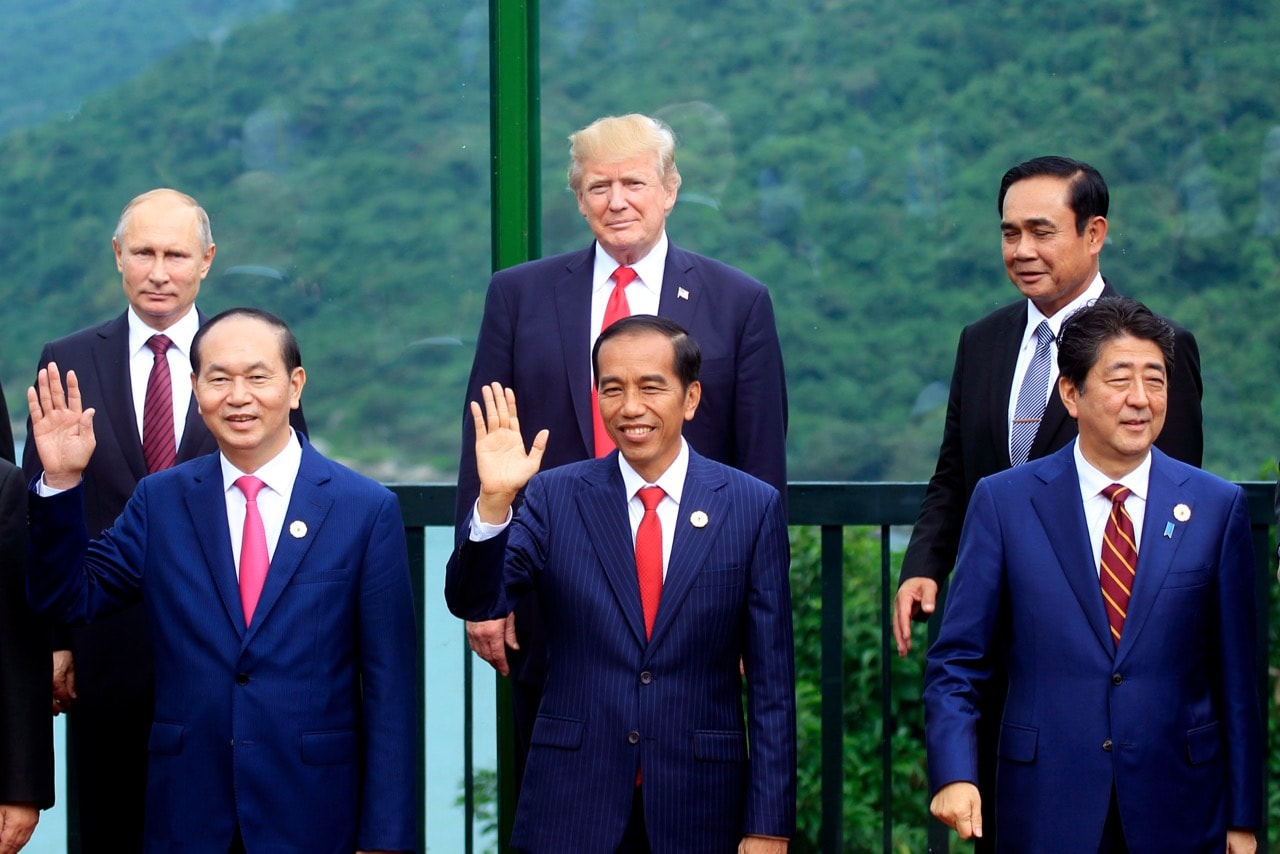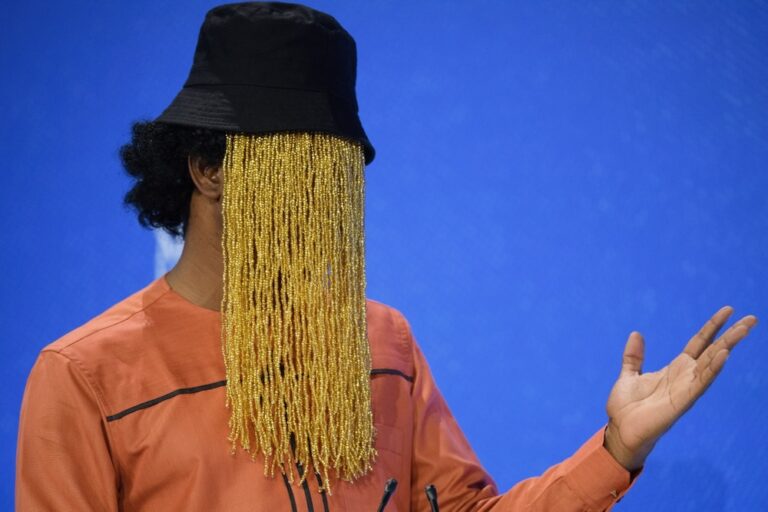President Trump's trip to Asia demonstrates a declining US willingness to defend press freedom in its bilateral and multilateral relationships with other countries.
This statement was originally published on rsf.org on 14 November 2017.
Reporters Without Borders (RSF) deplores US President Donald Trump’s treatment of the press while on a ten day trip to Asia, which included stops in several countries that are home to some of the worst press freedom predators. The trip demonstrates a continuing decline in the US government’s willingness to defend press freedom in its bilateral and multilateral relationships with other countries.
As press freedom has been on a steady downward trend in the United States of America, President Donald Trump took some of his restrictive anti-press practices with him on his official trip to Asia last week. From denying reporters access to certain events, to refusing to take questions, Trump was able to give the leaders of China, Vietnam and the Philippines a front-row seat to his disdain for freedom of the press.
Past presidents have typically made it a point to take journalists’ questions during trips abroad as a political showing of America’s commitment to the First Amendment. Former President Obama was heavily criticized for not allowing questions on his first trip there in 2009, but convinced the Chinese press secretary to take questions when he returned five years later. These official visits have usually been an opportunity for reporters to question foreign officials about issues typically off limits to local reporters, like a given country’s human rights record. For example, during Obama’s trip in 2014, a New York Times reporter was able to question China’s restrictive visa policies that targeted foreign journalists.
No questions allowed at press conference per Chinese request
However, this wasn’t the case with Trump. American reporters following the President on the China portion of his trip were not given the opportunity to ask either Trump or Chinese President Xi Jinping questions during a joint “press conference” that took place November 9. Press Secretary Sarah Huckabee Sanders stated “It was at the Chinese insistence there were no questions today.”
Though both Trump and Xi Jinping are known for their hostility towards the press, there is a notable difference between the two countries that makes Trump’s refusal to take questions more concerning. In addition to being the largest prison in the world for both professional and citizen journalists, China has routinely denied medical care to journalists who fall ill in detention. This recently lead to two deaths, including that of Nobel Peace Laureate Liu Xiaobo.
While China may be one of the worst offenders in RSF’s 2017 World Press Freedom Index (176/180 countries), Vietnam ranks just above it. Yet Trump failed to defend access for his press pool there as well.
Access to APEC summit in Vietnam restricted
During the Asia-Pacific Economic Cooperation (APEC) summit that took place in Danang, Vietnam on November 10 and 11, the White House press corps’ access to key events was severely limited, leaving many journalists wondering what was happening behind closed doors. First, reporters were barred from covering an APEC dinner on the 10th, which featured guests like Trump and Russian President Vladimir Putin. The press’ exclusion from the dinner was all the more significant given that the investigation into Trump campaign collusion with Russia in the 2016 presidential election and the White House’s repeated denial are currently dominating media coverage in the US.
On November 11, the majority of the White House press pool were kept in a separate room and barred from covering a photo-op between Trump and other Asian leaders. However, A Fox News camera crew and an official White House photographer were permitted to cover the event and tasked with sharing their footage with the rest of the pool.
Restricting reporters’ access while in Vietnam, which ranks 175 out of 180 countries on RSF’s 2017 World Press Freedom Index, is certainly an odd way to display American exceptionalism in freedom of information. The Vietnamese government has systematically criminalized freedom of expression during the past year by means of censorship, arbitrary detention and covert state violence. At least 25 bloggers have been arrested or deported. Yet this issue was never able to be raised publicly during the trip due to access restrictions.
“How is the US government supposed to advocate for press freedom abroad when it can’t even guarantee access to its own journalists traveling with the President?” asks Margaux Ewen, Advocacy and Communications Director for RSF North America. “Leaders of some of the most repressive countries in the world for journalists are witnessing just how little the American President values the First Amendment, which is completely detrimental to any future US efforts to push for the release of bloggers and reporters in places like China and Vietnam, or greater protection for journalists in the Philippines.”
“President Trump is providing the region’s authoritarian leaders with a blank check,” added Daniel Bastard, the head of RSF’s Asia-Pacific desk. “APEC’s members should remind their partners of the need to respect fundamental rights as, for example, Canadian Prime Minister Justin Trudeau has done, albeit cautiously, while in Vietnam and the Philippines.”
Duterte’s anti-press insults a laughing matter for Trump
When asked about the lack of coverage during the summit on Saturday, Press Secretary Sanders claimed she didn’t realize media access would be as limited during the trip and pledged to rectify that during the remainder of the trip in the Philippines. Yet by Monday, November 13, the President of the Philippines Rodrigo Duterte was calling journalists “spies” while posing for pictures before a bilateral meeting with Trump. Duterte’s jab was made in response to a reporter’s question of whether President Trump would discuss human rights abuses while in the Philippines, following harsh criticism of Duterte’s infamous “drug war,” which has resulted in thousands of extrajudicial killings. Shortly after Duterte’s comments, which merely elicited laughter from Trump, journalists were escorted out of the room and weren’t allowed to ask any further questions.
Over the past year, four journalists have been killed in the Philippines in relation to their work, with Duterte’s anti-press rhetoric becoming increasingly violent. He once infamously claimed that “just because you’re a journalist you are not exempted from assassination, if you’re a son of a bitch.” Referring to corrupt journalists at the time, he added that “you won’t be killed if you don’t do anything wrong.” That the US president should find comments like these a laughing matter represents a serious blow to the democratic principles that lay the foundation of the United States of America.
The Philippines ranks 127 out of 180 countries on RSF’s 2017 World Press Freedom Index. The United States ranks 43rd.



